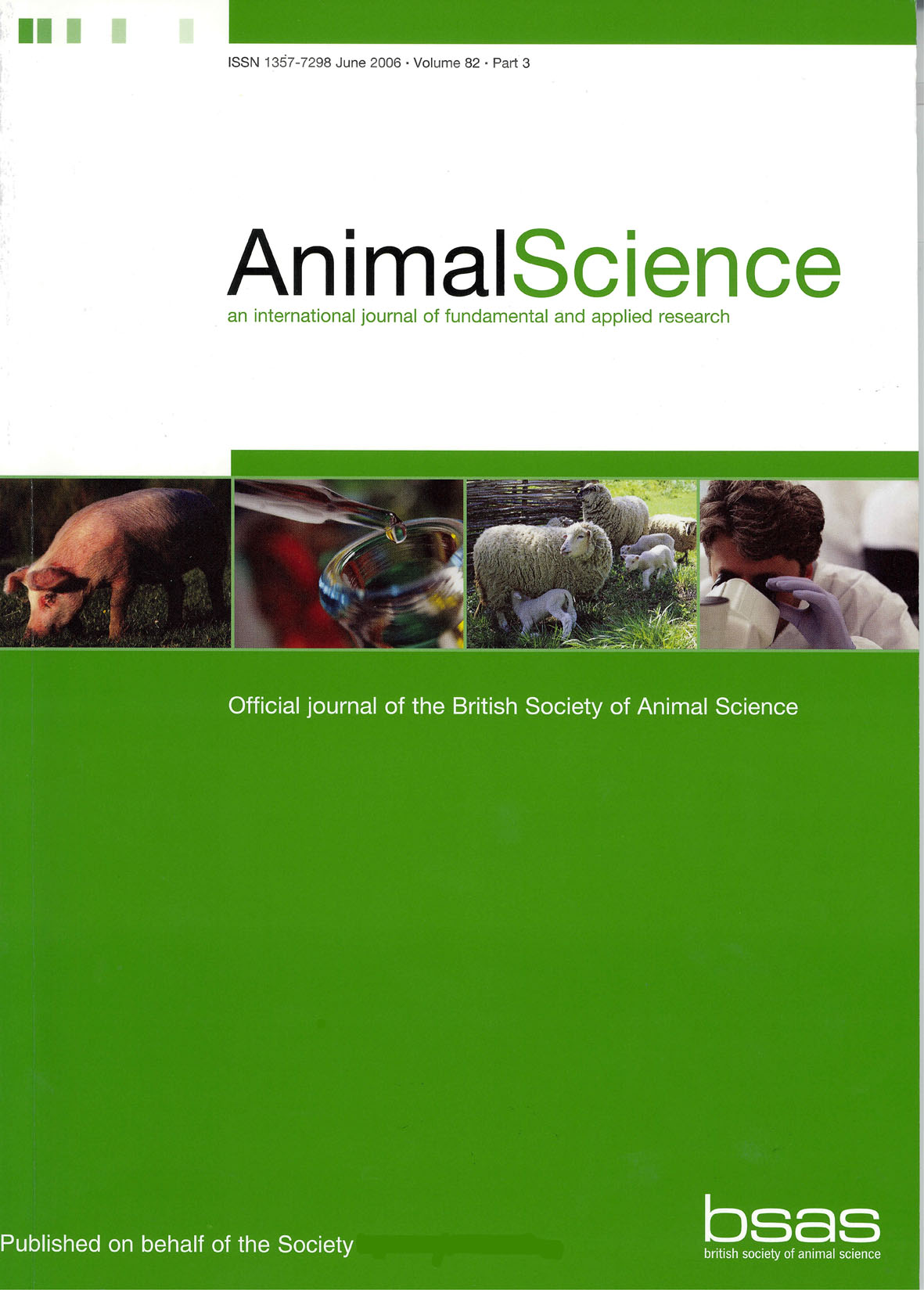Article contents
Effect of varying weight gain during the last trimester of gestation on productivity of beef heifers
Published online by Cambridge University Press: 02 September 2010
Abstract
An experiment was conducted using medium-sized crossbred beef heifers to study how manipulation of weight gain in late gestation affected production. Forty heifers were fed individually to gain according to one of three regimens for an approximate 90 day period prior to parturition: (1) 1·2 kg gain per head per day for 45 days followed by no gains for 45 days; (2) 0·6 kg gain per head per day for the entire period; (3) no gain for the first 45 days followed by 1·2 kg gain per head per day for the last 45 days. Milk production was measured by weighing of calves before and after suckling at 30, 60, and 150 days post partum. Heifers were weighed, measured for heart girth and hip weight, and visually scored for condition at the start, middle and end of the feeding period to quantify growth and condition changes. Heifers that had a high rate of gain for a short time produced more milk in early lactation than heifers that gained at a slower rate for a longer time pre-partum (P < 0·05). Calf weaning weights and dam reproductive performance were unaffected (P < 0·05) by pre-partum weight gain. It is concluded from these results, that as long as the recommended weight gain is achieved during late gestation, the timing of the weight gain is not critical to sustain productivity.
- Type
- Research Article
- Information
- Copyright
- Copyright © British Society of Animal Science 1988
References
- 4
- Cited by


